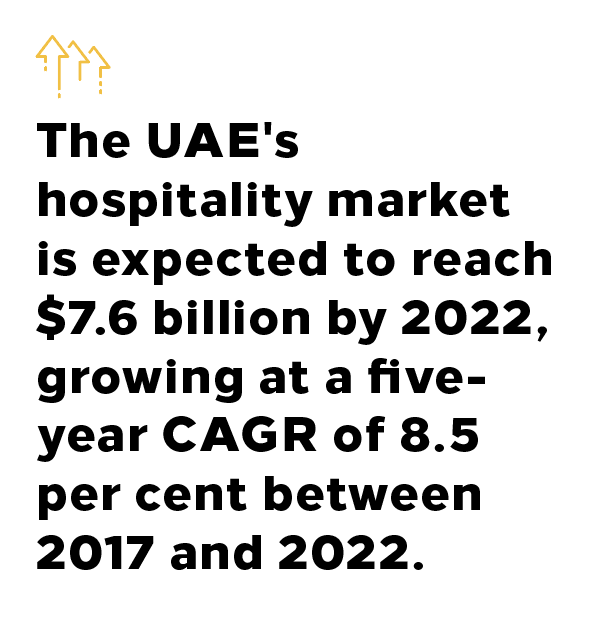- Arbitration
- Banking & Finance
- Capital Markets
- Commercial
- Competition
- Construction & Infrastructure
- Corporate / Mergers & Acquisitions
- Corporate Services
- Corporate Structuring
- Digital & Data
- Dispute Resolution
- Employment & Incentives
- Family Business & Private Wealth
- Innovation, Patents & Industrial Property (3IP)
- Insurance
Find a Lawyer
Book an appointment with us, or search the directory to find the right lawyer for you directly through the app.
Find out more
Level Up: Unlocking Financial Potential In The Middle East
Welcome to this edition of Law Update, where we focus on the ever-evolving landscape of financial services regulation across the region. As the financial markets in the region continue to grow and diversify, this issue provides timely insights into the key regulatory developments shaping banking, investment, insolvency, and emerging technologies.


2025 is set to be a game-changer for the MENA region, with legal and regulatory shifts from 2024 continuing to reshape its economic landscape. Saudi Arabia, the UAE, Egypt, Iraq, Qatar, and Bahrain are all implementing groundbreaking reforms in sustainable financing, investment laws, labor regulations, and dispute resolution. As the region positions itself for deeper global integration, businesses must adapt to a rapidly evolving legal environment.
Our Eyes on 2025 publication provides essential insights and practical guidance on the key legal updates shaping the year ahead—equipping you with the knowledge to stay ahead in this dynamic market.
The leading law firm in the Middle East & North Africa region.
A complete spectrum of legal services across jurisdictions in the Middle East & North Africa.
-
Practices
- All Practices
- Banking & Finance
- Capital Markets
- Commercial
- Competition
- Construction & Infrastructure
- Corporate / Mergers & Acquisitions
- Corporate Services
- Corporate Structuring
-
Sectors
-
Country Groups
-
Client Solutions
Today's news and tomorrow's trends from around the region.
17 offices across the Middle East & North Africa.
Our Services
 Back
Back
-
Practices
- All Practices
- Banking & Finance
- Capital Markets
- Commercial
- Competition
- Construction & Infrastructure
- Corporate / Mergers & Acquisitions
- Corporate Services
- Corporate Structuring
- Digital & Data
- Dispute Resolution
- Employment & Incentives
- Family Business & Private Wealth
- Innovation, Patents & Industrial Property (3IP)
- Insurance
- Intellectual Property
- Legislative Drafting
- Private Client Services
- Private Equity
- Private Notary
- Projects
- Real Estate
- Regulatory
- Tax
- Turnaround, Restructuring & Insolvency
- White Collar Crime & Investigations
-
Sectors
-
Country Groups
-
Client Solutions

- Law Firm
- /
- Insights
- /
- Law Update
- /
- April 2020
- /
- Hotel establishments: keeping track of millions of yearly guests and maintaining safety
Hotel establishments: keeping track of millions of yearly guests and maintaining safety
Fady Ghanem - Partner - Corporate Structuring
 Hotel establishments: an overview
Hotel establishments: an overview
The United Arab Emirates (‘UAE’) has long been recognised as a premier tourism and leisure destination. Over the past decade, the Hospitality and Tourism sector has experienced rapid and continued growth, becoming a vital factor of the UAE’s successful economic expansion strategy.
In 2017 it was estimated that the Hospitality and Tourism sector contributed over AED 150 billion (US$ 41 billion) to GDP (4.6 per cent of GDP), and provided almost 570,000 jobs which represented 4.8 per cent of total employment.
According to the UAE’s Competitiveness and Statistics Authority, the country welcomed 20.4 million hotel guests in 2017, making it one of the world’s top tourism destinations.
The total number of overnight stays has increased by 155 per cent in the past 10 years to 2017 to 70.9 million, while the country’s supply of hotel rooms is set to increase to an estimated 165,000 by this year.
In parallel, the UAE has also been ranked as the safest country in the world; considering the number of individuals that come in and out of the UAE through the hospitality and tourism sector, how does the UAE keep track of guests staying at hotel establishments whilst also ensuring seamless stays?
Licensing Hotel Establishments
At the outset, hotel establishments in Dubai are regulated by a number of pieces of legislation, including mainly, the Decree No. 17 of the year 2013 Concerning the Licensing and Specification of Hotel Establishments in Dubai (‘HE Decree’).
As per the HE Decree, hotel establishments include, but are not limited to, hotels, apartment hotels, inns, and student dorms (‘Hotel Establishments’), and are licensed and regulated by the Department of Tourism and Commerce Marketing (‘DTCM’).
In addition to licensing Hotel Establishments, the DTCM (inter alia) supervises Hotel Establishments’ activities, classifies them from ranging from five stars to touristic in accordance with international standards, and oversees the implementation of the required guests safety procedures in the UAE.
Recording guests: IT Programme
Further to the Decree No. 13 of 2011 Concerning the E-Program for Hotel and Touristic Facilities in Dubai, all Hotel Establishments in Dubai are required to adopt and operate a Hotel Establishments Information System Programme (‘Programme’), and to operate such a programme and enter the proper information in order to be linked electronically with any government institution or authority.
The Programme’s specifications are determined by the Dubai Police General Headquarters (‘DPGH’).
All Hotel Establishments are required to install computers and appropriate hardware and software that abides by the DPGH’s Programmes’ specifications.
The main purpose of the Programme is to ensure that the facility is linked to the Dubai Police for security and information, as well as other relevant governmental departments, including (but not limited to) the DTCM particularly for the purpose of recording information, and obtaining fees, including the Tourism Dirham (further clarified below).
The DPGH prepares the Programme, and supervises its operation, maintenance and development. The DPGH also ensures that the Programme is linked to the required governmental departments and public agencies, and institutions, as may be required (which include for example, but are not limited to, the Department of Economic Development, the General Directorate of Residency and Foreigners Affairs-Dubai, and the Roads and Transport Authority, and the DTCM).
Programme subscription and operation
To subscribe to the Programme, Hotel Establishments are required to submit an application to the DTCM.
The term of subscription to the Programme is for the same period prescribed for the facility’s licence, which is customarily one year, and the annual fees for subscription to the Programme amount to AED 3,000 (US$ 800) for hotel facilities and AED 1,500 (US$ 400) from touristic facilities, payable to the DTCM.
Hotel Establishments are not permitted to welcome guests unless they have subscribed to the Programme, and an Hotel Establishment’s licence will not be renewed unless its subscription to the Programme is renewed, and will be subject to penalties should these conditions be contravened.
Once the Programme is obtained, hotels are required to obtain a dial-up line from Etisalat (the telecommunications corporation) for their computers and software to be used solely for the systems’ requirements. The line must be exclusively used for the Programme, and will be connected to the DPGH and other concerned government departments.
All Hotel Establishment employees must be trained to use the Programme, and must ensure that all guests provide the required information for input into the Programme.
Obtaining information
Upon checking-in to the Hotel Establishment, the respective guests’ information must be input within the Programme, which is connected to the DPGH and other governmental authorities and bodies. The information required by the each of the DPGH, the DTCM, and other governmental authorities will be stipulated within, and accessible on, the Programme.
It is mandatory that copies of passports (for tourists) and Emirates IDs or UAE Diving Licenses (for UAE residents) be taken for all guests staying at the hotel.
Additional information, including for example, email address, residence address, and profession can be taken from one of the guests.
To ensure the safety and confidentiality and data privacy of guests, applicable laws stipulate the information and data contained within the Programme are deemed as confidential, and all workers of the facility are prohibited from using the said data for purposes other than those for which it is designated.
Guests: payment
In addition to ensuring that guests’ information is recorded in the Programme, Hotel Establishments must ensure that their guests comply with the applicable laws and pay all applicable fees. To do so, guests are not permitted to check-in to any Hotel Establishments without covering the stay’s expenses through one of the following methods:
- cash advance deposit;
- credit card pre-authorisation for an amount equivalent to such expenses;
- pre-paid voucher issued by a travel agency or tour operator approved by an Hotel Establishment; or
- a letter from the guest’s company, approved by an Hotel Establishment, guaranteeing full or partial payment of the guest’s bill.
Additionally, and as per Executive Council Resolution No 2 of 2014, Approving the Tourism Dirham Fee in the Emirate of Dubai, guests will be also charged a ‘Tourism Dirham Fee’ for each night of occupancy at an Hotel Establishment. The Tourism fee was introduced as a means to help fund Dubai Expo 2020 projects.
The applicable Tourism Dirham Fee differs depending on the Hotel Establishment’s classification category. For example, the Tourism Dirham fee for five star or higher rated hotels or resorts is AED 20 (US$ 6) per night, for four-star hotels or resorts its AED 15 (US$ 4) per night, and for two to three star hotels its AED 10 (US$ 3) per night.
The Tourism Dirham fee must be paid by the guest at check-in along with the foregoing payments.
In the event that guests refrain from paying the applicable fees (i.e. the Tourism Dirham, or the hotel stay expenses, or any other applicable stay fees), an Hotel Establishment should take the following steps:
- suspend the guest’s credit card within the Hotel Establishment facilities and request service payment in cash;
- request the guest to leave their room or apartment and double-lock it with the luggage inside;
- in the event that negotiations to settle the due amount fail, the Hotel Establishment may call in the guest’s embassy, or company, or otherwise, the Dubai police; or
- finally, if the hotel establishment retains the guest’s passport (which is the case when it is sponsoring visa), the hotel will be required to submit the passport to the police, or the guest’s company, or alternatively, the respective embassy.

Penalties
Hotel Establishments that commit violations to the foregoing will be subject to fines that range from AED 1,000 (US$ 270) to AED 10,000 (US$ 2,700).
For example, the penalty for non-subscription or non-renewal of the subscription to the Programme on operation of devices despite the availability thereof is AED 1,000 (US$ 270), while the penalty for the disclosure of confidential information is AED 10,000 (US$ 2,700).
The said fines can be doubled in case of recidivism within one year of committing the preceding violation, with a limit on the value of the fine capped at AED 40,000 (US$ 10,900).
Other penalties include closing the facility for a period of no more than three months.
Conclusion
The UAE, and in particular Dubai, has one of the highest numbers of hotel rooms in the world as it is one of the most visited destinations in the world. The UAE’s hospitality market is expected to reach US$ 7.6 billion by 2022, growing at a five-year CAGR of 8.5 per cent between 2017 and 2022.
To ensure that Dubai maintains a record of all said guests, and ultimately, preserve its security, the DTCM introduced the Programme, which ensures that all guest information is recorded, retained, and accessible by the Dubai Police as well as any respective governmental authorities.
All guests are required to provide copies of their passports, as well as an advance payment of their stay together with the payment of the applicable Tourism Fee.
This ensures that no disputes arise between Hotel Establishments and guests at the end of their respective stay, that safety is maintained within the Emirate, and that the Hospitality and Tourism sector profits are realised, which ultimately leads to the sectors’ growth.
For further information, please contact Fady Ghanem (f.ghanem@tamimi.com).
Stay updated
To learn more about our services and get the latest legal insights from across the Middle East and North Africa region, click on the link below.


